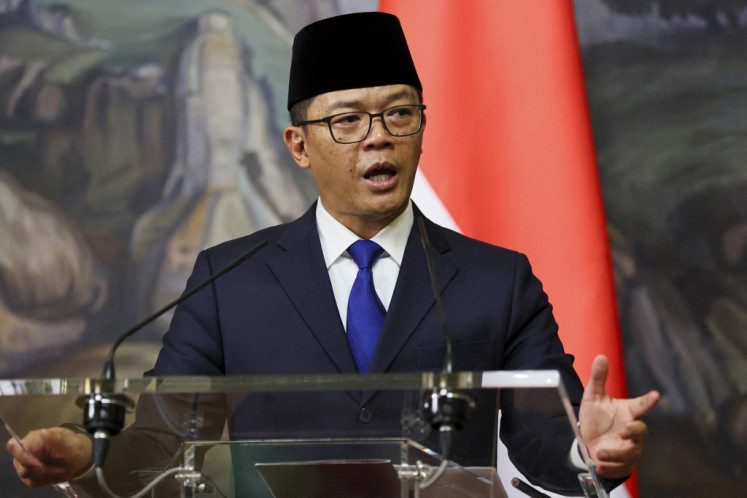Popular Reads
Top Results
Can't find what you're looking for?
View all search resultsPopular Reads
Top Results
Can't find what you're looking for?
View all search resultsFacilities for abused children still poor
Indonesia has insufficient facilities to assist vulnerable children due to poor government coordination, an official says
Change text size
Gift Premium Articles
to Anyone

I
ndonesia has insufficient facilities to assist vulnerable children due to poor government coordination, an official says.
"The finance ministry cut the budget for our programs, which aimed to establish treatment facilities across the country, claiming it was the responsibility of the regions," Makmur Sunusi, the director general for social rehabilitation and services at the Social Services Ministry, told a seminar on child-sex tourism Thursday.
"Ironically, the regions pay very little attention to social services because they say it is the central government's duty."
There are only seven child-protection homes or shelters run by the government across the country's 33 provinces, Makmur told the audience at the three-day Southeast Asia Conference on Child Sex Tourism in Sanur.
He said the facilities were located in Jakarta, Pontianak in West Kalimantan, Jambi, Baturaden in Central Java, Malang in East Java, Mataram in West Nusa Tenggara and Makasar in South Sulawesi.
Makmur said he regretted the slow response from government to cases of child-abuse, saying collaboration was required among ministries in order to sign a Memorandum of Understanding (MoU).
"In reality, we don't really need a MoU but that is how it works," he said.
"While politicians will agree to take action during the meetings, a MoU is needed to push for real action," he told The Jakarta Post.
The seminar, attended by 205 participants from 17 countries, aimed to present a clear picture of the child-sex tourism industry in Southeast Asia and develop models and agreements to combat the commercial child-sex industry.
The End Child Prostitution, Child Pornography and Trafficking of Children for Sexual Purposes (ECPAT) International said that countries within Southeast Asia had become a hot spot for those seeking to exploit children sexually.
The abusers' methods for gaining access to a child, as outlined in the seminar, are similar from one country to another.
"They target vulnerable, poor children and offer them money, education assistance or support for their family before eventually abusing them," Samleang Seila from Action Pour Les Enfants Cambodia said.
Meanwhile, I Gusti Putu Laksaguna, head of the tourism and cultural resources development agency at the cultural and tourism ministry, said his agency would continue educating local tourism industries about the code of conduct in place across the island, which while unknown to many, has the potential to weed out those running child-exploitation rackets.
The seminar also explored the role media could play in campaigning about child-exploitation. Elisa de Jesus, a technical advisor of the Kanaivasu Foundation, an Indonesian NGO concerned with child protection, said treating victims with respect and confidentiality was crucial to ensuring they were not victimized by society.









